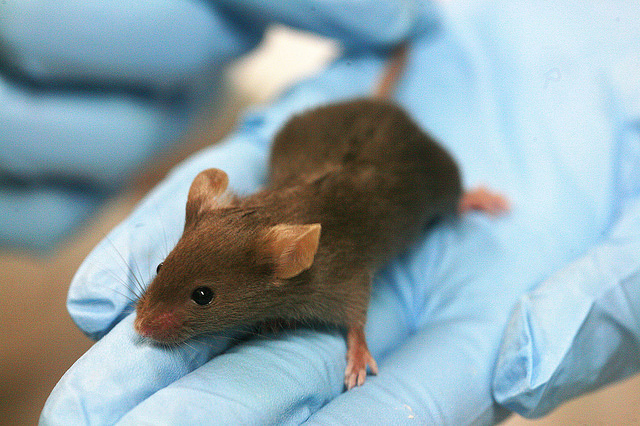Indulging in donuts and cheeseburgers isn’t the best for your heart or your waistline, but the harms of a diet high in fat don’t stop there. A recent study suggests that eating a high-fat diet leads to changes in the distribution of bacteria in your gut, which may have negative effects on mental health.
In your body, there is an entire ecosystem of microorganisms that collectively make up the microbiome. There are trillions of these bacteria, and they have a symbiotic relationship with your body that, if disrupted, could have serious consequences.
Image Source: Science Photo Library – PASIEKA
There is already evidence that obesity increases the risk of mental illnesses, such as depression and dementia. In this study, researchers wanted to know if a gut microbiome associated with a high-fat diet would be sufficient to cause neurological symptoms even without obesity as a factor. In order to find out, they obtained a group of nonobese mice that were fed a normal diet. These mice then received microbiome transplants from either nonobese mice (fed 13% fat calories) or obese mice (fed 60% fat calories) and were evaluated for mental and physical changes.
Interestingly, the mice who received microbiomes from the obese mice began to exhibit negative effects even though they themselves were not obese. They became more anxious, exhibited increased marble burying (a stereotypical and compulsive behavior), had worsened memory, and even had increased gut permeability and signs of inflammation, including inflammation in the brain. The microbiomes they received from the obese mice had differences compared with the microbiomes from the nonobese mice. For example, they had 5.4-fold less of the supposedly beneficial Akkermansia muciniphila bacteria and 300-fold more of the supposedly harmful Bilophila sp. bacteria.
The ability of a gut microbiome associated with obesity to have negative effects in the absence of obesity is significant for research because it points to the microbiome as a potential way to help treat psychiatric disorders, and it supports previous research suggesting an important link between the brain and gut. It is not clear how disruptions in the balance of a gut microbiome can lead to these detrimental effects; however, the increased inflammation and intestinal permeability found in some of the mice could be potential factors.
Feature Image Source: Lab Mouse by Global Panorama










